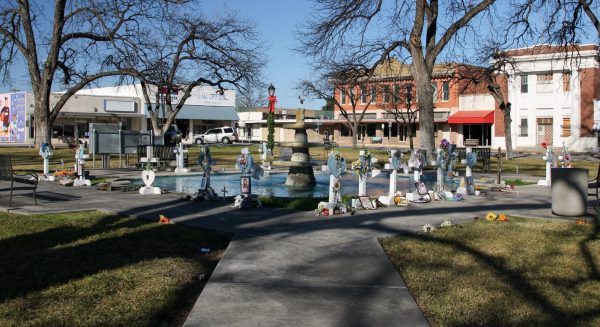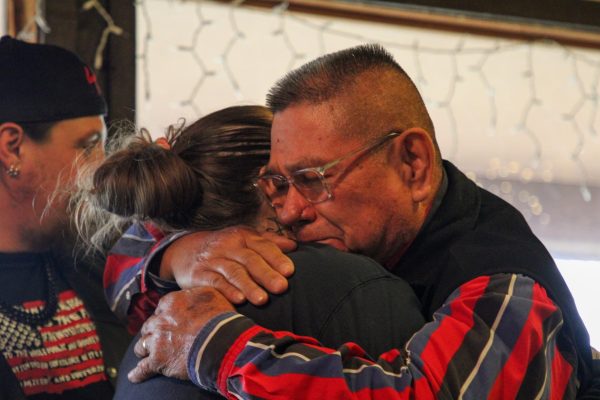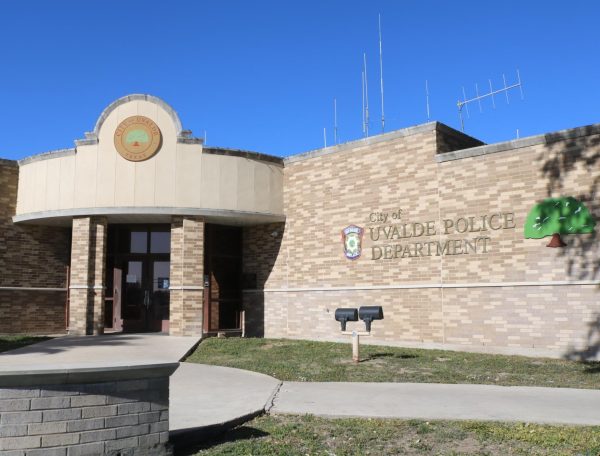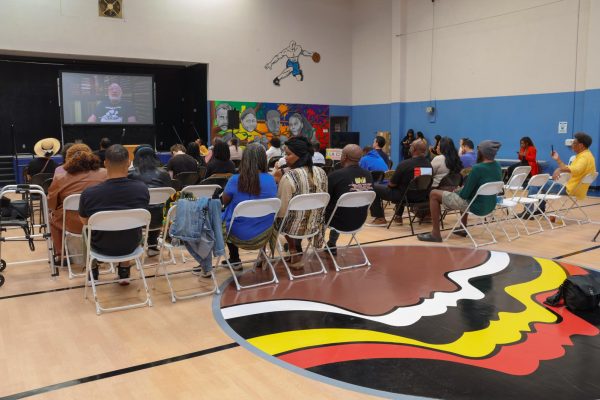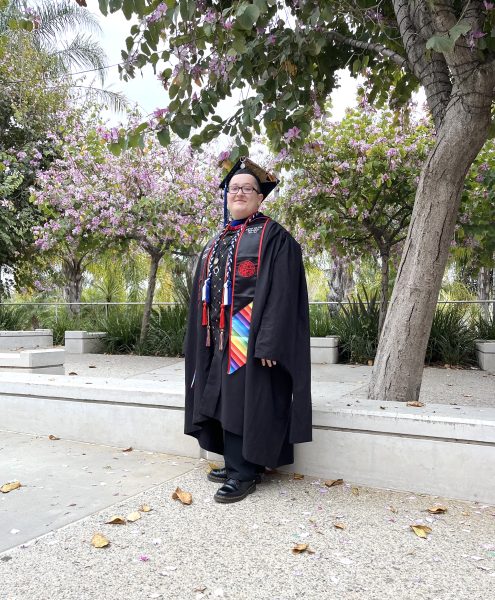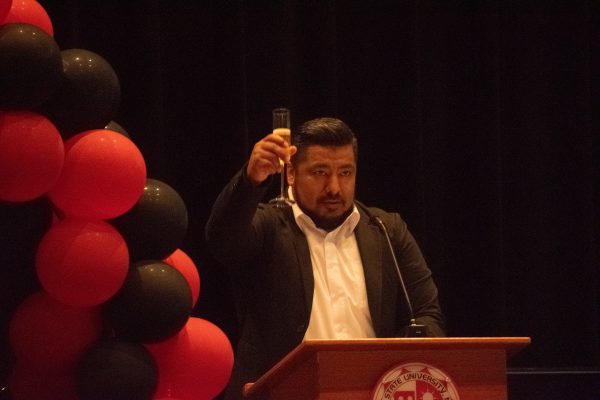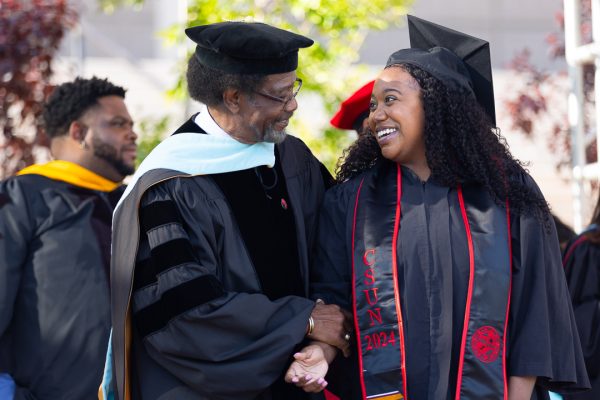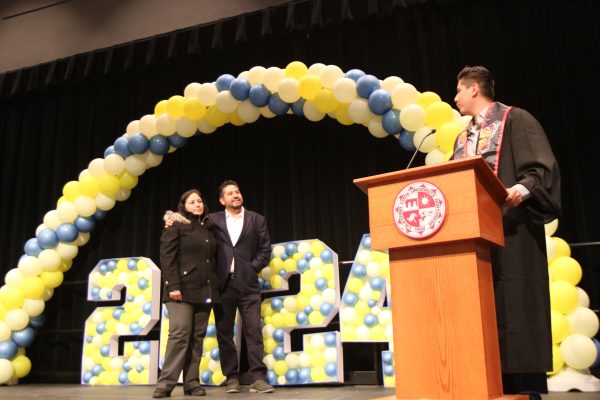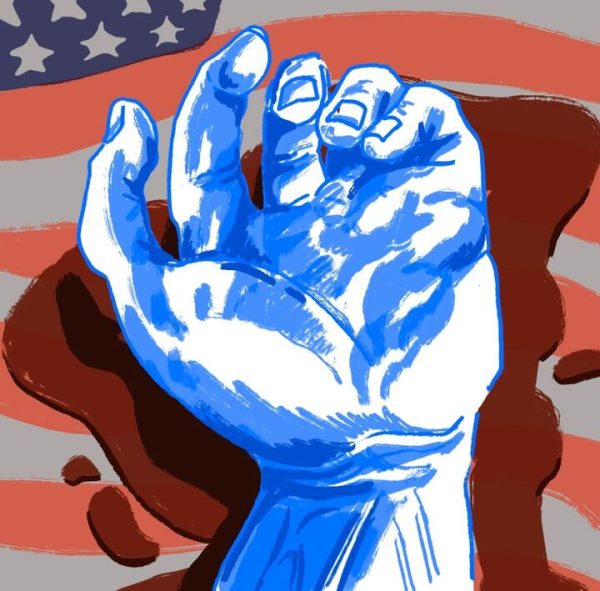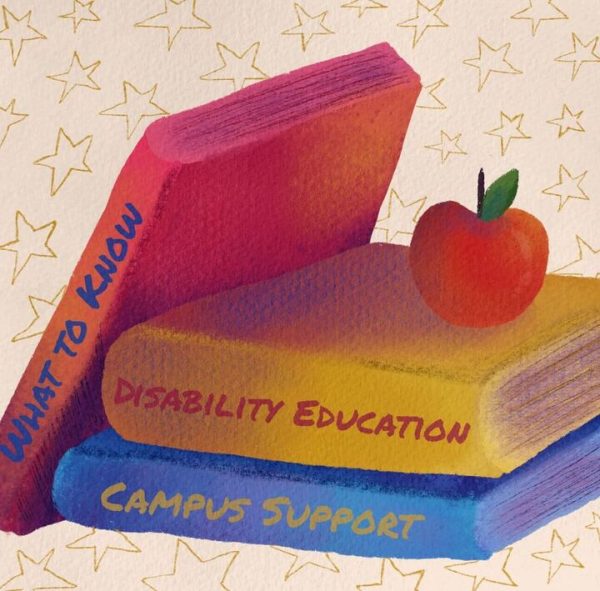OPINION: A South Central youth on the importance of mental health resources
May 13, 2022
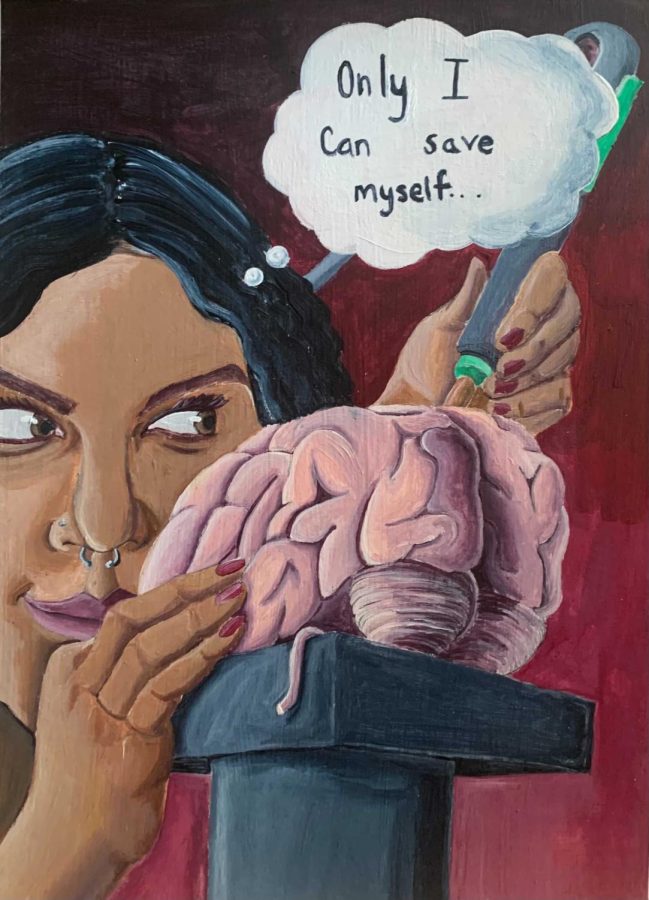
“What my life would’ve looked like if I didn’t spend so much time hiding and blaming myself.”
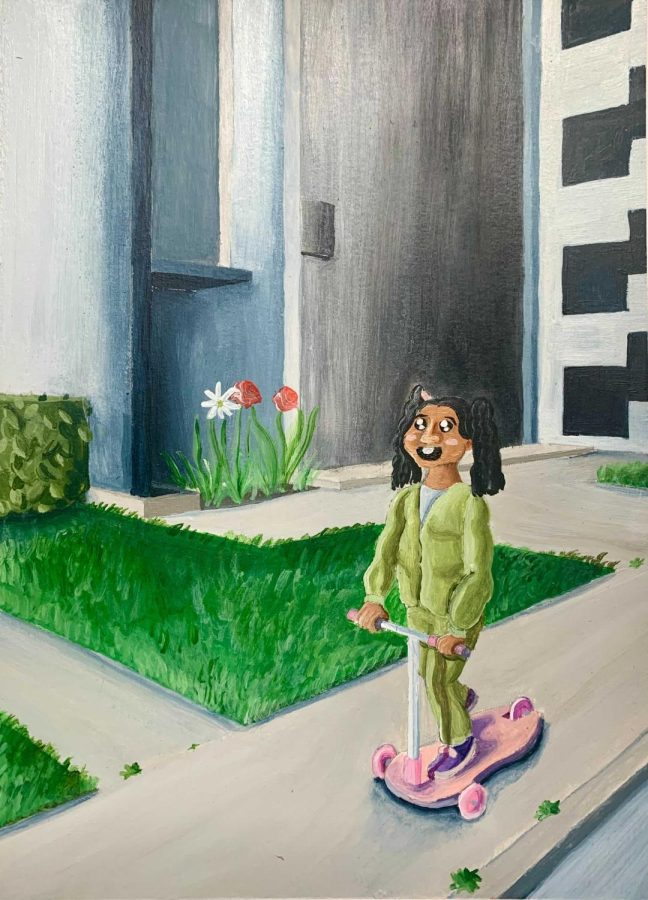
“I remember one of my first stories being when I was 5 years old. I would play outside of my public housing complex in Pueblo Del Rio.”
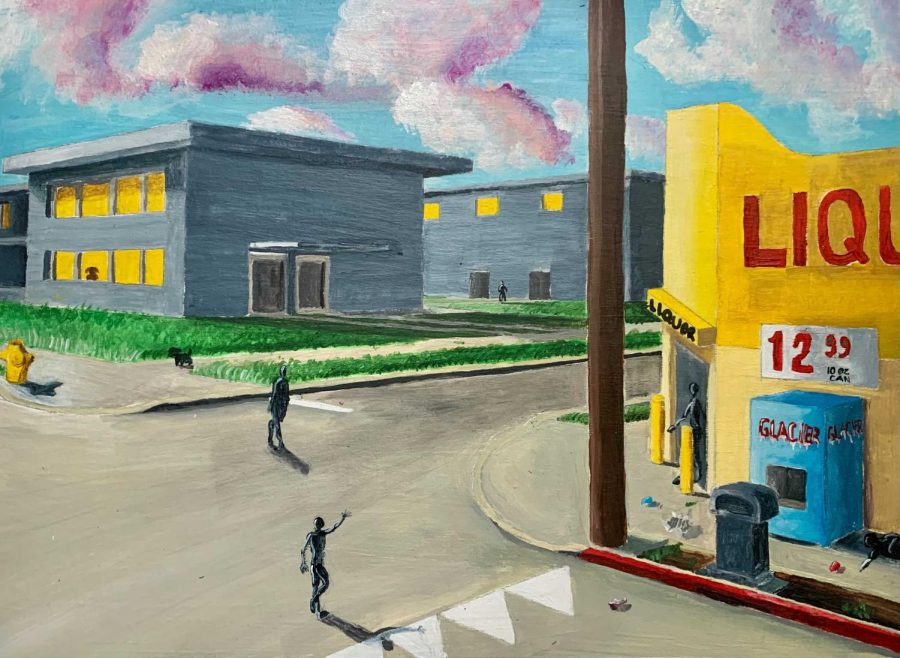
“It’s hard to escape violence and crime in low-income neighborhoods. It’s hard to breathe without inhaling the surrounding violence. It’s what comes with poverty.”
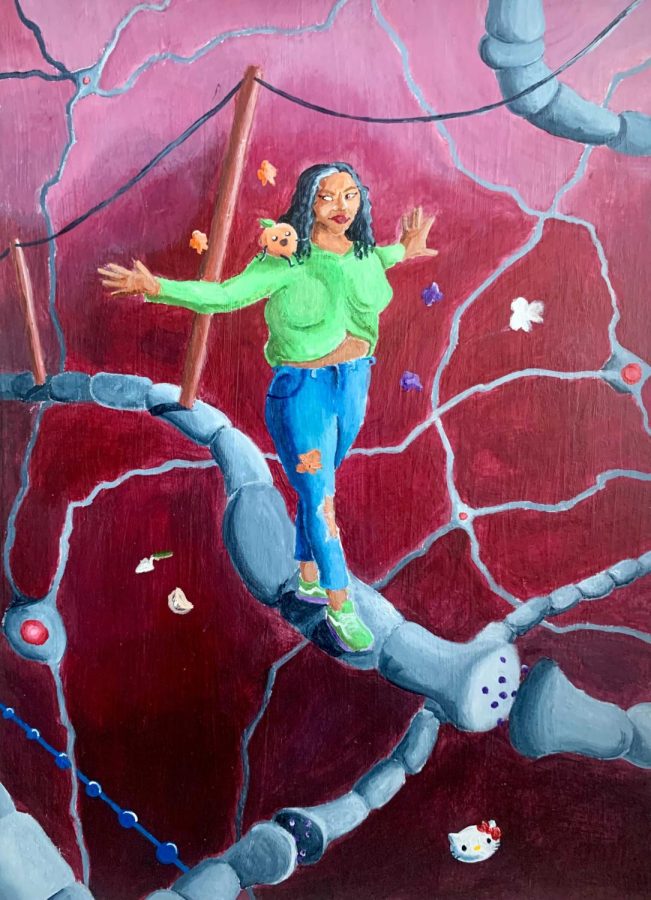
“I’m able to learn so much about myself. Especially with my OCD. Helping me cope and process those isolating thoughts.”
Below is a written transcription to read along to while listening.
Growing up I would always distance myself from others. It didn’t matter if it was family or close friends. I would create an imaginary barrier between us. I did so to try and protect the people around me. I seriously believed I was saving them from myself. The ugly intrusive thoughts I dealt with isolated me. It fueled my brain with ideas of suicide and violence. It convinced me I was a bad person.
Even if my own thoughts went against my morals it felt like they were mine. I didn’t want to be that. I had a bully in my brain. I would hide behind humor. It made me so insecure. I was convinced this was normal and who I was. I felt cursed with these violent images replaying in my mind no matter where I was.
This was one of the most isolating times in my life. I feared who I was so much it would leave me bedridden. It was very damaging. It was until my junior year at CSUN that I was able to understand what I was going through. I was diagnosed with OCD.
I actually couldn’t believe I had OCD. I remember hearing my diagnosis and automatically thinking that wasn’t it. I told myself “I’m not a neat freak. How could I have OCD?” It was until my therapist explained what obsessive-compulsive disorder really is. It isn’t a habit nor a personality trait it’s a disorder.
OCD affects those with it differently but typically with obsessions and compulsions. When she explained that my heart shrunk. I was being described with what I have felt my whole life. All the nasty thoughts I had. How much I blamed myself for being a horrible person. It’s always been OCD and not me. I had a lot of mixed emotions about being diagnosed. It was very liberating but also so sad. For one part I was happy to know I wasn’t a horrible person. As well, I wasn’t stuck with intrusive thoughts. On the other hand, I did so much mourning. First, for myself. I mourned for the person I could’ve been if I was diagnosed earlier or didn’t have OCD at all.
I learned about OCD pretty much later on in my life. I’m only 20 now but I wish I knew this as a kid. Since growing up my parents taught me to be resilient. They wanted me to be able to endure life’s difficulties. I think it’s because they’re Central American. They went through many hardships in their home countries. I’ll always be grateful for the sacrifices my parents made. But I explain the difference in their experiences to mine as being from two different worlds.
My endurance comes from the resources given to me at school. While their endurance came from survival. The other part of my mourning was for my community because they aren’t able to escape their own mental prison. There’s a lot of beauty in my community. A lot of heartfelt memories I’ve shared with my family. Laughter with neighbors. Conversations with friends. But there’s so much hidden suffering. In each corner, there’s someone with a story. Either it’s something they’ve witnessed, done, or heard.
One day a gunfight between two gangs broke out. I was frozen I felt as if I was stuck in time. To be honest I’m not even sure how I survived. I stood there frozen just staring at a man standing across from me. He too looking right at me. It was probably just 30 seconds passing by but it felt like forever. After that short time, a bullet struck his head. His eyes still looking at me as he dropped to the floor. I’ve tried so hard to suppress that memory. At this point, I felt as if it was an out-of-body experience.
It’s so common for a person in my community to have traumatic memories. I’m very thankful I’ve been able to access resources to help me process such memories. With the mental health resources, I have at school. It makes me think about the people in my community. The many without those resources. That spend many days bedridden with their own thoughts. Forced to believe they’re a horrible person like I did.
It’s hard to escape violence and crime in low-income neighborhoods. It’s hard to breathe without inhaling the surrounding violence. It’s what comes with poverty. The government has never cared for low-income communities. We’ve had to learn how to cope on our own. To believe it’s our story from where we are. It shouldn’t be. We don’t have the luxury of taking a walk to free our minds. There’s always a danger when you leave your home. Which seems like such a small luxury, but isn’t ours.
In January, a taco-bell employee just down the street from my house was shot and killed. Over a counterfeit bill. He worked there once a week with his son. That’s just so sad and scary. It shouldn’t be normal for anyone to witness a murder. There’s a lot of grieving being done in these kinds of neighborhoods. It really feels like we’re running out of air.
All I really want is for my community to have the opportunities I have. And they deserve to share their stories just like mine.
